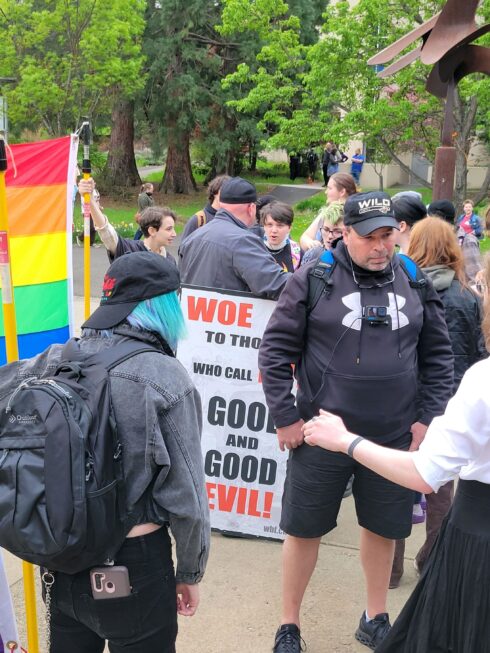Since its confirmed case in Dallas, Texas on September 30th, the Ebola virus has dominated many mainstream newscasts and even some conversation on the Southern Oregon University campus. Reports are being updated hour to hour and include news that the director of the U.S. Centers for Disease Control and Prevention, Dr. Tom Frieden, activated a 21-day monitoring which would begin Monday in the six states where about 70 percent of air travelers enter the United States from Liberia, Guinea and Sierra Leone, countries hard hit by Ebola in West Africa. Those states are New York, Pennsylvania, Maryland, Virginia, New Jersey and Georgia.
The three-week period marks the maximum incubation time forEbola.
Part of the reason for the interest and concern are the grizzly images and symptoms of Ebola which include boils and bleeding from the mouth and eyes as well as low survival rate if not treated aggressively.
Still there are few cases confirmed of the virus in America, none in Oregon, yet the concern continues to mount and healthcare professionals are forced to deal with it by creating web pages, answering questions and holding news conferences even in Medford, Oregon where, according to Jackson County Health officials, Ebola is unlikely to emerge.
The LA Times reported that a bus system in their downtown area was temporarily shut down after a rider who had traveled to Nigeria complained about feeling feverish. Also, Jesuit High School in Portland cancelled a class visit that was supposed to host 18 representatives from the U.S. Department of State Pan African Youth Leadership Program due to fear of the disease. These students are between the ages of 15-18 and were selected by U.S embassies from Republic of Congo, Ivory Coast and Niger. None of the countries that the students or the feverish bus rider hail from have reported a single case of Ebola.
Concern about foreign diseases being imported to the U.S. is not a new thing. At the end of 2003 America became obsessed with Bovine Spongiform Encephalopathy or more commonly known as Mad Cow Disease. Though the disease was discovered in Britain in 1986 and peaked in 1993, Americans didn’t really become concerned until 2003 when one cow in Canada was confirmed to have BSE. The next few months were a pandemonium of meat recalls and cattle testing, spearheaded by scientific facilities in the UK, where the disease was most prominent. Dating from 1996 to today, there have been four BSE fatalities in the United States.
Still, healthcare facilities across the country are reporting an increase in questions about the disease and are trying to make as much information known as possible. Jackson County Public Health representing Ashland to Grants Pass published an entire page on their website recently explaining their plan of action should Ebola come here. Hospitals have also been briefed should a case be discovered in our area. The treatment for the disease is largely about treating the symptoms.
Nurses and doctors treating patients around the world have been concerned about how U.S. reaction including mandatory quarantines for returning healthcare professionals will affect future aid to countries in need.
Nurse Kasi Hickox was put in isolation Friday after returning to New Jersey from a month in Sierra Leone.
Her quarantine, part of a days-old policy the governors of New York and New Jersey instituted for all healthcare workers who’ve had contact with Ebola patients in West Africa, has been criticized widely by healthcare experts.
On Sunday, Hickox spoke by phone with CNN cable news, “This is an extreme that is really unacceptable, and I feel like my basic human rights have been violated,” Hickox said. She said she was confused as to how New Jersey Governor Chris Christie, who has no medical training, could describe her as “obviously ill.”
Still, the fear of Ebola spreading continue today with decisive action and treatment for anyone who may have had a chance of exposure.
Meantime, an expert who has studied Ebola for more than a decade, Purdue University’s David Sanders, said on Monday that he feels the policy on mandatory quarantines in New York and New Jersey are “largely political” rather than medical fact and that leaders are acting based on the desire to calm a panicked public rather than to do what’s most beneficial.



